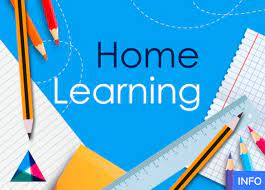Home Learning

Home learning is a vital part of a child’s education and can add much to their development. It is one of the main ways a child can acquire the skill of independent learning. We also acknowledge the important role of play and free time in a child’s growth and development. We set a variety of home learning activities routinely each week which are accessed mostly through online platforms and some through bespoke spelling and times table practice diaries.
Each week at home, we expect pupils to read to their parents/carers, practise their spellings and practise their times tables.
Spelling at South Camberley



We have a two pronged approach to spelling at South Camberley. We teach the children the statutory words and spelling rules that they should know for their age as set out by the national curriculum but we also pick up on individual spellings that children need to know in order to make progress. Our spelling home learning approach reflects this in that we set a weekly task on Google Classroom to reinforce and practise the spelling rules and we pick individual, personal spellings to take home that they write in their spelling logs. They practise and learn these spellings at home and then bring their spelling log in to be checked by the teacher and use it in class a personal dictionary.
Reading at South Camberley
Being able to read and understand what you are reading is an essential life skill and the key to learning in all areas of the curriculum. With this in mind, hearing your child read and reading to them is the learning we would like you to prioritise above all others. We would like you to hear your child read for 5-10 minutes each day and record this electronically in their personal reading diary on BoomReader.

DIGITAL READING RECORDS
WE USE THIS DIGITAL RESOURCE TO RECORD ALL READING ACROSS THE WHOLE SCHOOL FROM NURSERY TO YEAR 6.
This digital reading resource, which is accessible as an app or via the internet, allows both parents and children to record reading at home. Through using BoomReader, parents/carers can easily read the successes and next steps identified by the class teacher. It is also an opportunity to share information about your child’s reading at home. For example, teachers and parents may note down any reading successes, any tricky words or general comments about how they were able to discuss a text.
Children can also log their own reading, create their own avatar, spend their gems and challenge their friends using the Go Apps - Pupil Portal. BoomReader is well established in our school and every child has been introduced to the app which is accessible via Wonde or at https://pupils.goapps.app/.
Parents/carers have received login details to set up their own BoomReader accounts to record reading with their child and follow the progress that they are making at school.
For further guidance on how to use this app, please watch the video presentation or PDF guides which are attached at the bottom of the page.
Times Tables at South Camberley


At South Camberley, we expect all pupils in Years 1 and 2 to practise their basic number skills through Numbots daily and from Year 3 upwards to practise their tables every week at home through Times Tables Rock Stars. We would be so grateful if you could support your child to do this – it's easy, fun and really improves children’s tables fluency. Teachers check each week who is accessing their tables on TTRS and they set new challenges accordingly.
We know the vital importance of basic skills in maths in order to make progress in other areas of maths. That’s why we devote so much time to learning our multiplication and division facts!
Here’s a summary of the times tables that your child will learn over the course of the year:

So you can see that by the time children have finished Year 3, they are expected to know all their times tables up to 12 x 12 – forward, backwards and mixed up!
Each week from Year 2 upwards, we teach and practise tables daily by:
- Looking for patterns and relationships between them
- Learning them off by heart through chanting, songs, games
- Mini tests and quizzes to make sure they can remember them
In Years 3 and 4, children have an additional lesson once a week just on times tables as they have a national electronic test later on the year which checks their speed and fluency. Therefore, they need to practise a lot and be super fast. In Years 3 and 4, children have Times Tables Practice Books which allows the teacher to set them personal tables to learn and practice each week. This should be completed and practised at home and then brought back to school each week for the teacher to check.


